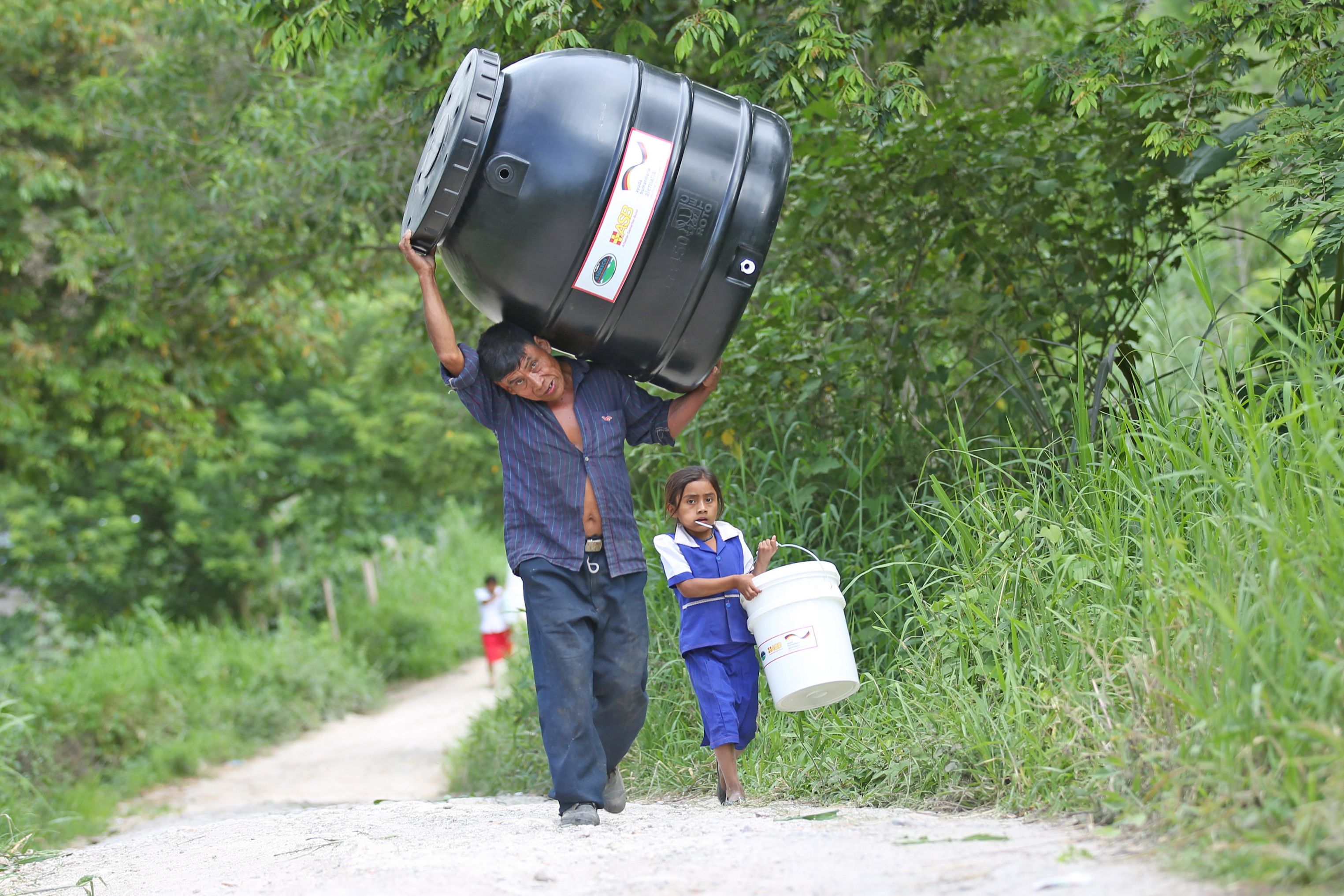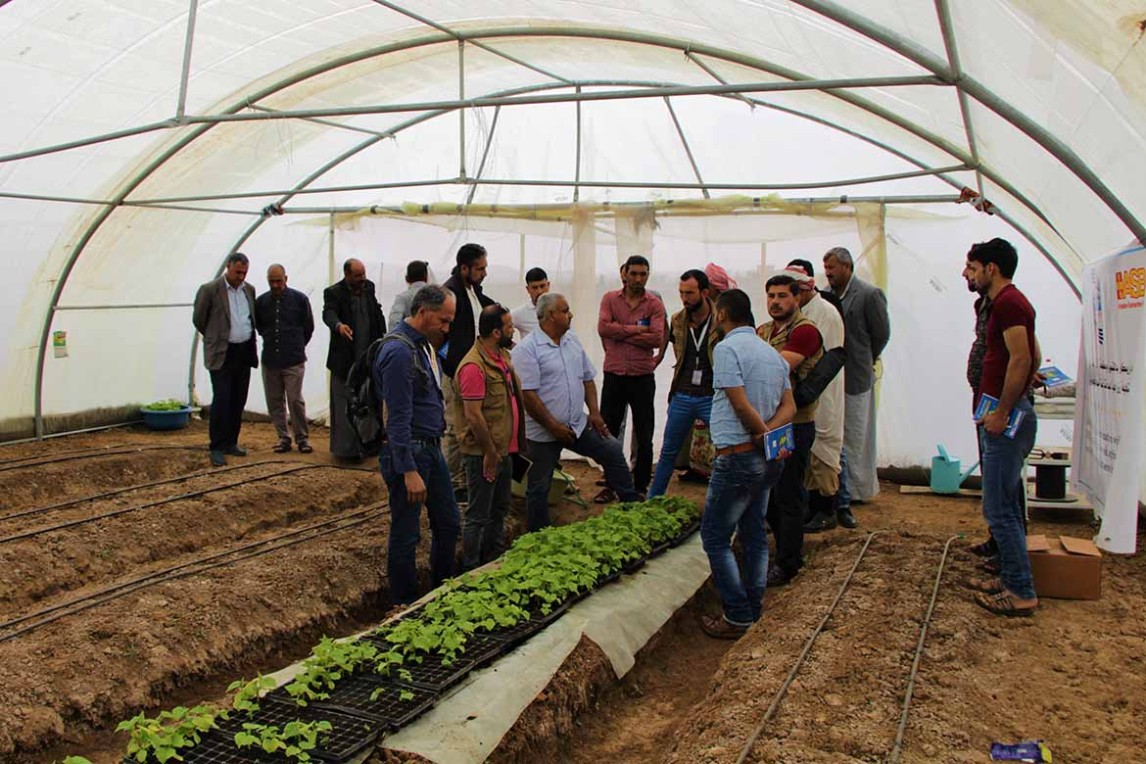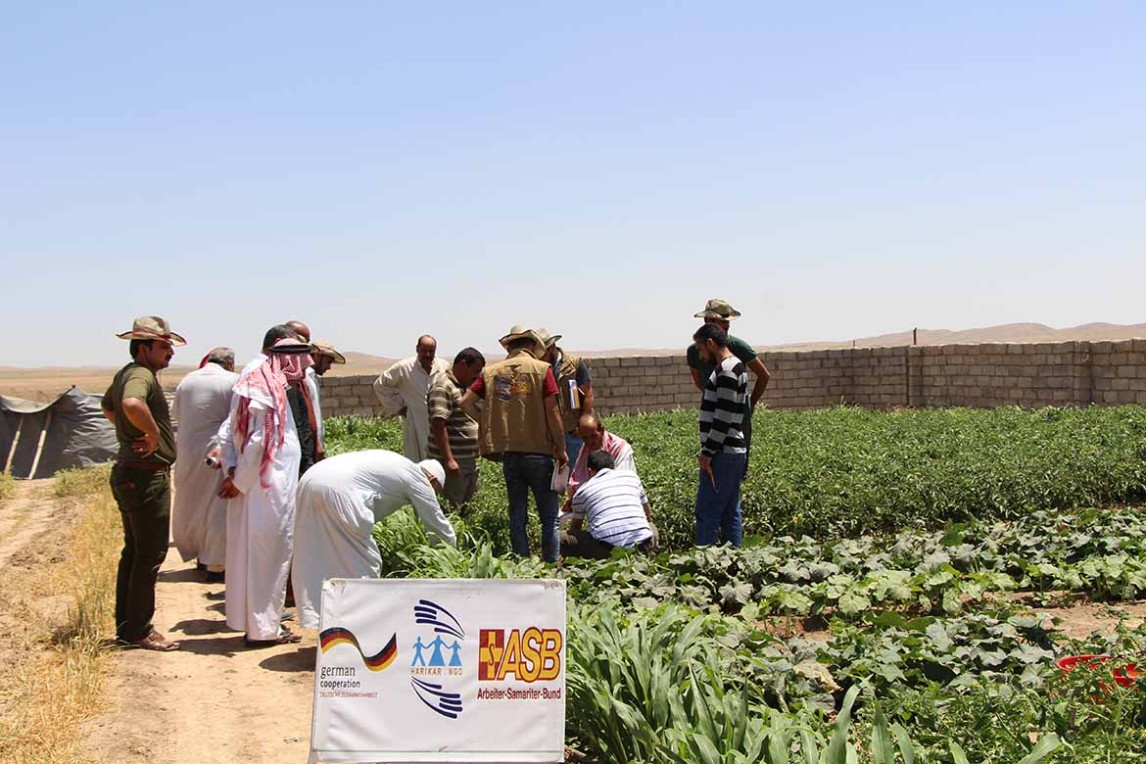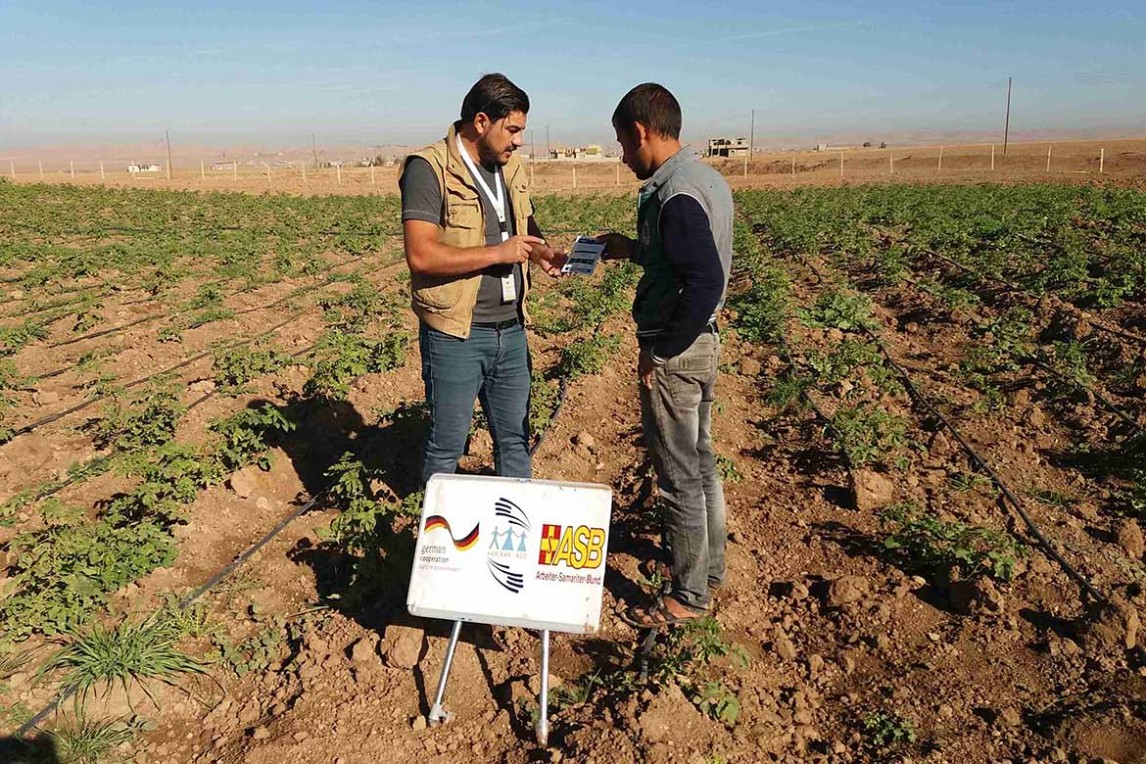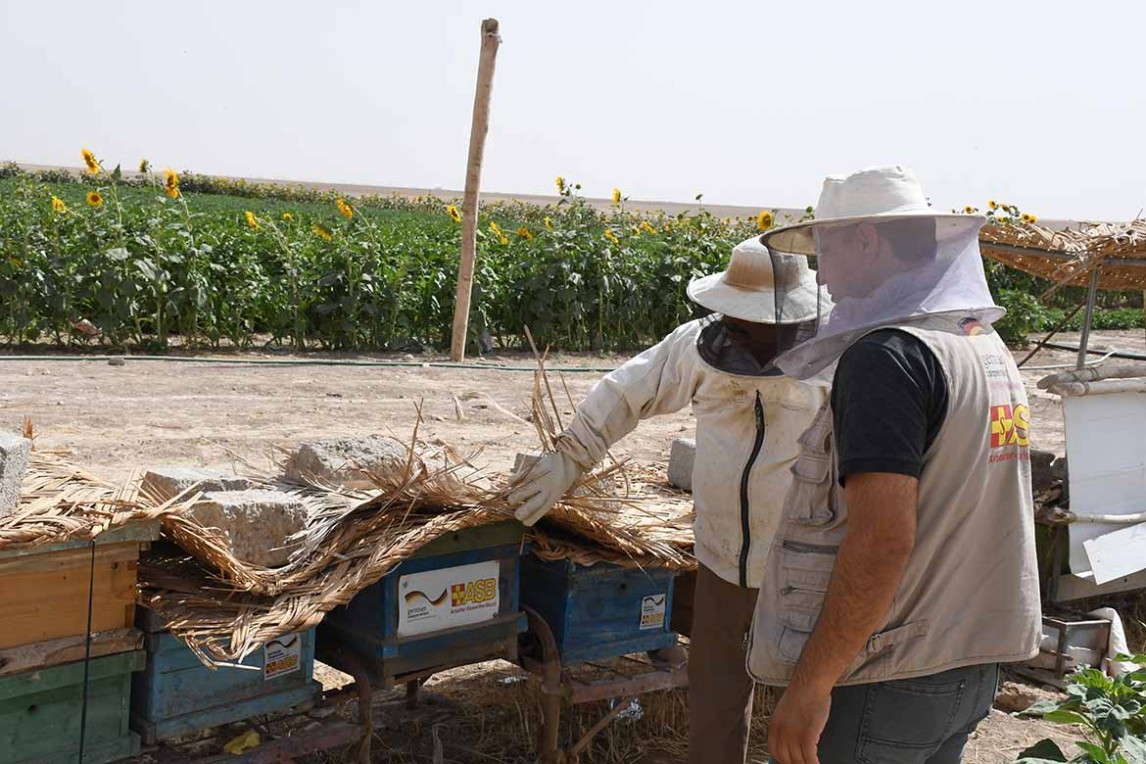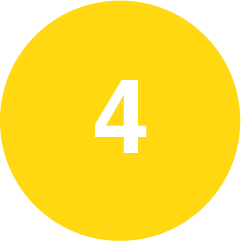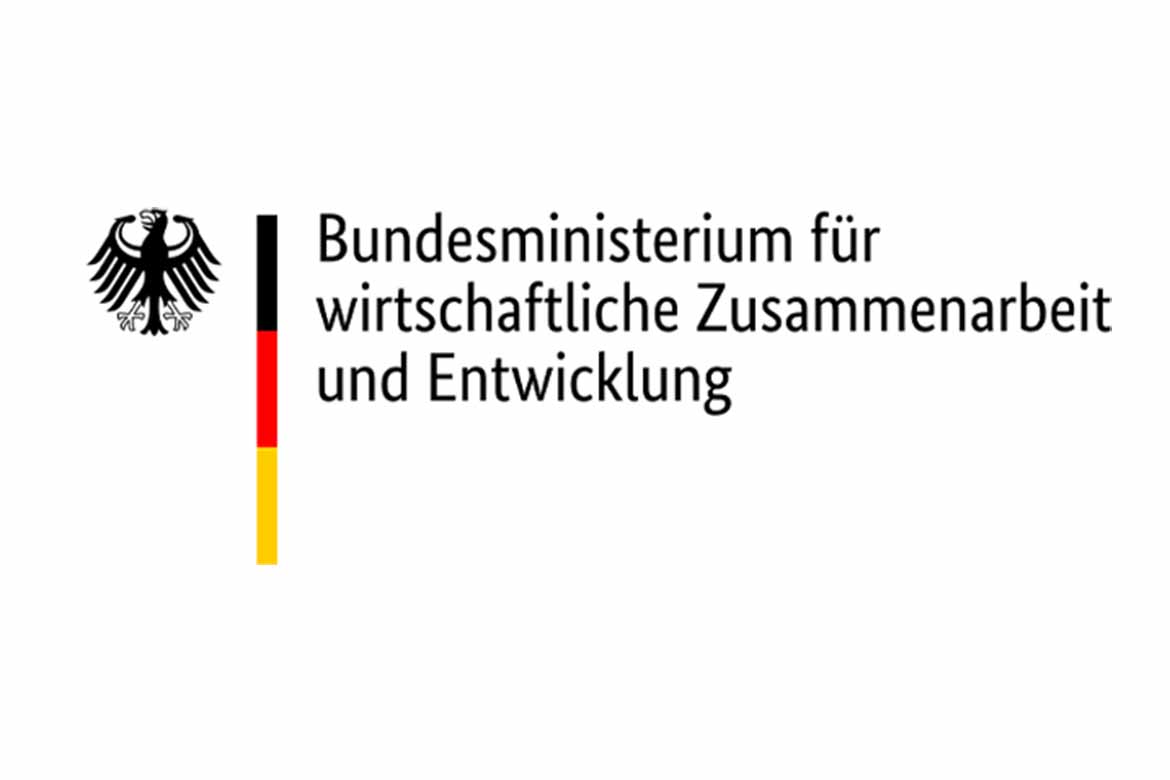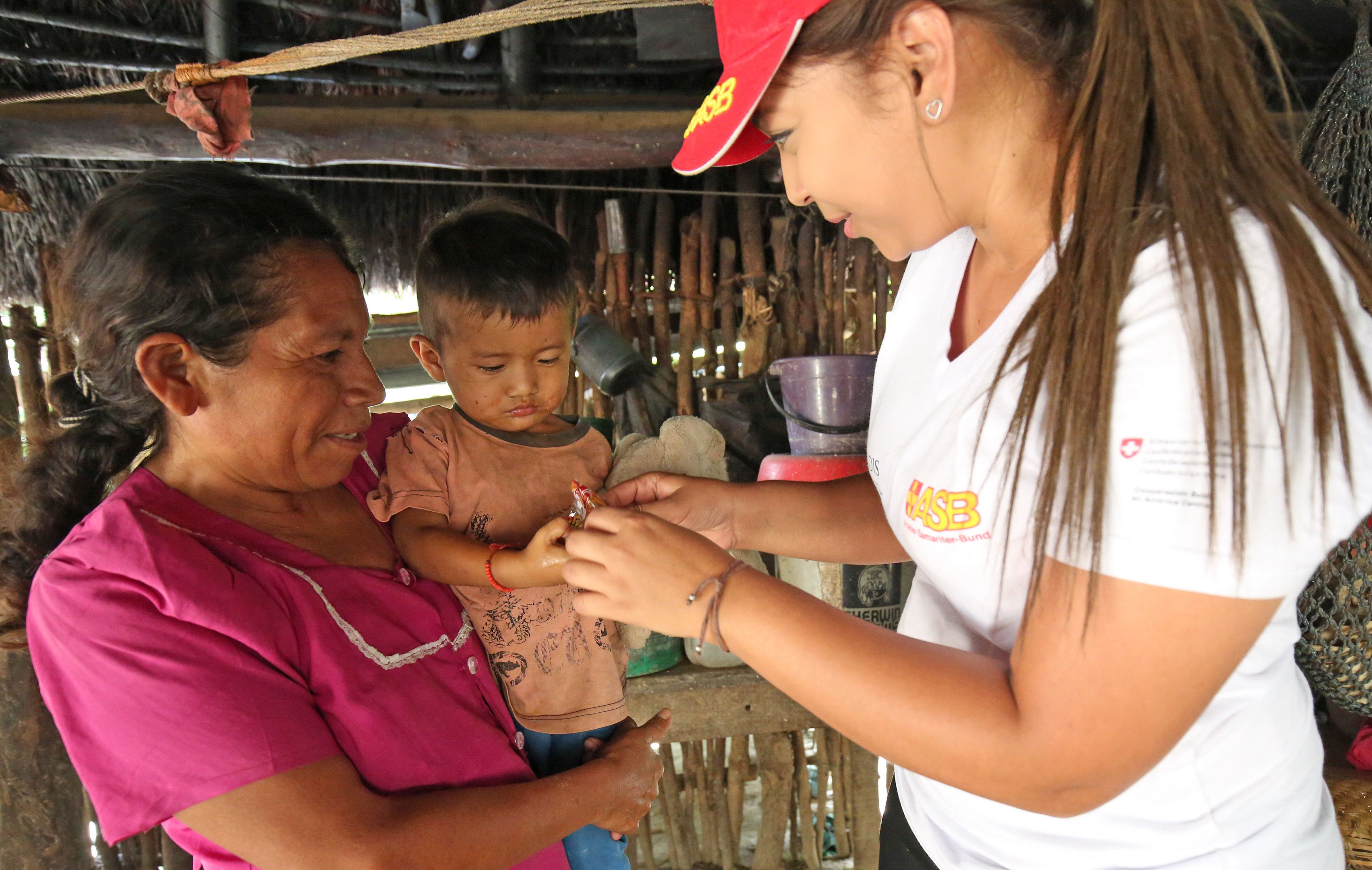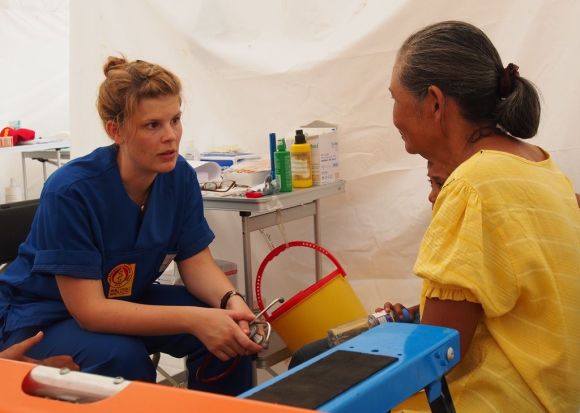-

Project title: Strengthening the resilience of conflict-affected residents and returnees in newly accessible areas by improving food security, livelihoods and solidarity
-

Project region: Ninawa province, Sinjar and Talafar districts
-

Project volume: € 1.7 million
-

Financing: BMZ transitional aid
-

Duration: 18/08/2017 - 31/08/2020
-

Target group: Local communities, returnees, IDPs, farmers The target group of the project comes from various ethnic and religious groups. Beneficiaries include Arabs, Kurds, Turkmens, Yazidis and Christians who live in the project area and were affected by the conflict with ISIS
